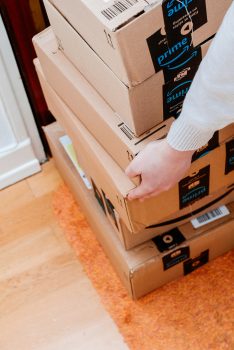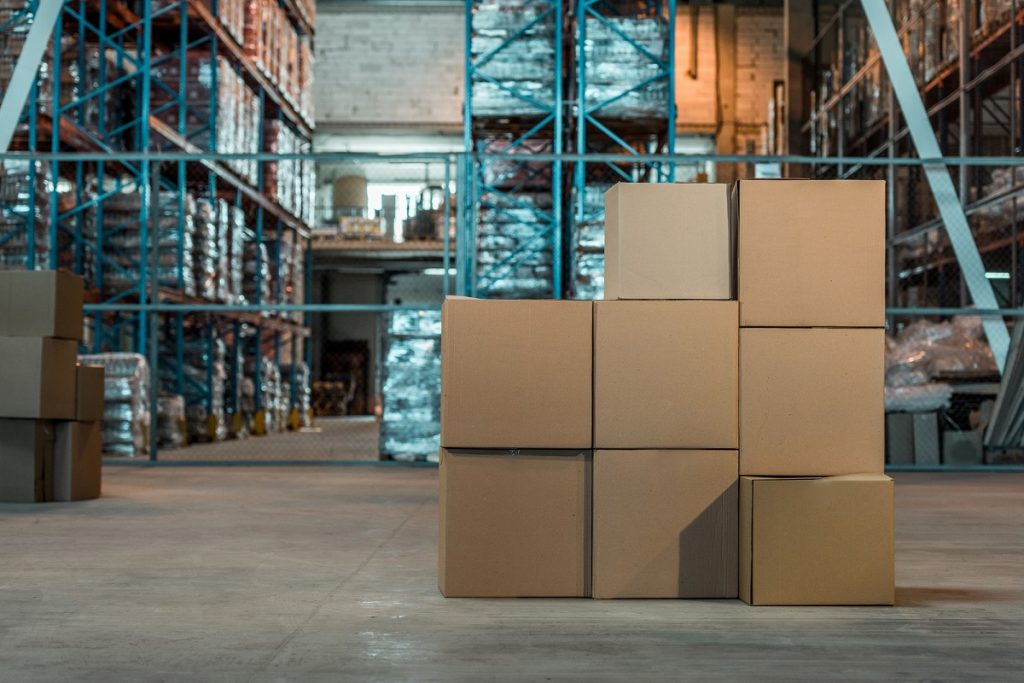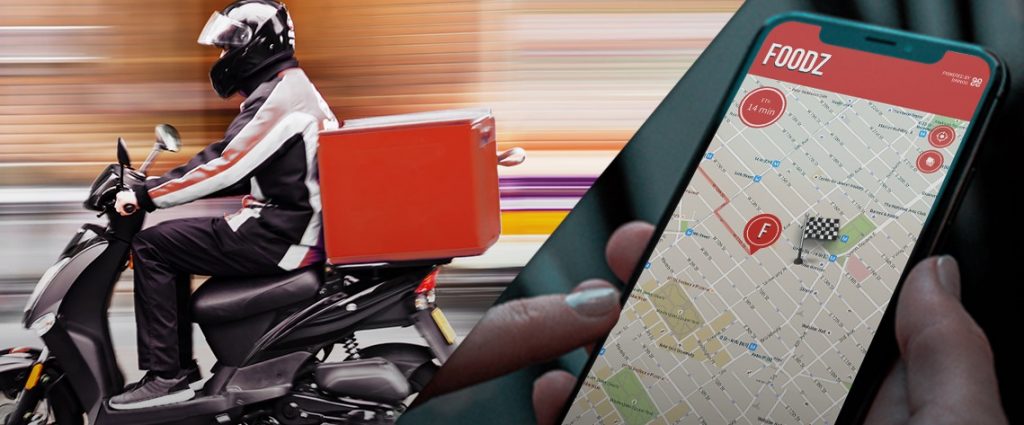Amazon has in the span of a decade revolutionized the e-commerce industry and re-shaped what it means to be a consumer today. It has even spawned the term “the Amazon Effect” to describe how the multinational has dramatically altered the retail landscape worldwide, in everything from publishing to electronics and home goods to jewelry. The effect is felt across industries like transportation with on-demand ride-sharing and taxi services (Uber, Lyft), entertainment (Netflix, Hulu) and food deliveries.
Today, Amazon has come to claim nearly 50 percent of the e-commerce market in the US, bringing in $232.89 billion in 2018 alone.
The multinational giant has also altered expectations for customer service, through a basically endless selection of goods, and features such as free shipping, free returns, and same-day deliveries.
SEE ALSO: As Amazon Opens First Automated Supermarket, Meet The Israeli Startups Shaking Up Shopping Tech

A stack of Amazon packages. Deposit Photos
The company has for the most part been in a league of its own, but there are competitors taking the fight to Amazon particularly in certain industries. UberEats, launched in 2014 by Uber – which started with a mobile app to identify and track the closest available cab – DoorDash and GrubHub are just a few.
And now, enter Bringg. The Tel Aviv-based logistics management platform is looking to stake its own claim on the world of lightning-quick, convenient deliveries, retail giants be damned.
Founded in 2013 by entrepreneurs Lior Sion, previously with Gett, and Raanan Cohen, Bringg developed an innovative SaaS (software-as-a-service) platform that offers companies real-time capabilities for tracking and delivery logistics. Bringg says its solution provides the platform for enterprises to “orchestrate, manage, measure and track their entire delivery ecosystem, whether they are using in-house fleets, third party providers, or a combination of both.”
In a newly released e-book titled “Delivery In the Age of Amazon, Sion writes that “Amazon has succeeded where others have failed by adding a crucial technology layer across all its delivery and fulfillment channels, from the first mile to the last, seamlessly syncing, measuring, optimizing and tracking activities across all related systems and partners.”
The result, he says, are that consumers are now demanding “the same optimal experience from each and every brand. For this reason, omnichannel logistics has become one of the greatest business challenges, although it also remains one of the greatest business opportunities.”
Bringg began as a logistics platform for small businesses and mom-and-pop stores that wanted to reach customers directly, providing them with the advanced operational abilities required in an on-demand economy. It has now shifted to the enterprise market, working with companies such as Walmart, Panera Bread, and Coca-Cola to name a few.
“Customers want convenience their way, they want transparency and control,” Bringg CEO Guy Bloch tells NoCamels in a phone interview. “They also want different delivery options – click and collect, click and pick-up curbside, click and deliver – and Bringg provides the logistics for all of this.”
Amazon and Uber, he says, are leading in this market but every business, every company can take control and build delivery and fulfillment operations that would resonate with customers.
“Amazon is the biggest retailer in the world, but really Amazon is a data and logistics firm,” says Bloch. The company “built a closed world where businesses surrender their customers to Amazon because that’s where the clientele is. And Amazon can offer products that compete directly with a business, and it has no control.”
Sign up for our free weekly newsletter
SubscribeBringg “wants an open world where it can enable businesses and companies to provide efficient deliveries to their customers, where teaming up with us can help them counter the threat posed by Amazon,” Bloch tells NoCamels.
With Bringg, companies can run complex delivery and dispatch operations in real-time from first- to last-mile, and enjoy visibility and traceability across the supply chain, all while providing customers with a seamless experience. These services arguably save businesses the money and time necessary to develop their own logistics platforms.
“Let’s say you are a mechanic shop and a car comes in with a broken window,” Bloch says, launching into an example. “You don’t have that particular window for that particular car in your inventory but you can order any part and it’ll be delivered within hours so you can make the repair.” In this scenario, the shop will have avoided having to send the customer away while it looked for the window or ordered it (on Amazon), relying instead on its own logistic abilities powered by Bringg to locate the part and have it delivered to the store. All without turning to third-party companies.
A real success story, according to Bloch, is Panera Bread, the US chain store and restaurant with over 2,000 locations. “They only had physical locations which is mostly ok in urban areas, but less so in suburban or more remote regions. They decided to begin providing deliveries and tapped into their own employees to do so.”
But running delivery logistics is no easy feat, and with Bringg’s platform Panera Bread now vets over a million orders a month, Bloch says.
Bringg does not take a percentage on revenue or ask for maintenance fees, opting for annual contracts with enterprises. Bloch says the company works with businesses in the restaurant, grocery, retail, and healthcare industries in the US, Latin America, and Europe, and has major plans for growth.

An illustrative photo of packages in a warehouse. Deposit Photos
In Israel, where Bringg runs its corporate headquarters and an R&D center in Tel Aviv (in addition to field headquarters in Chicago and offices in New York), Bloch says there is no real “market readiness” for its services but mentioned that FedEx Israel is a customer.
SEE ALSO: Israel’s Trigo Vision Wants To Bring The Amazon Go Shopping Experience To All Retail Stores
Bringg recently raised $25 million in a Series C funding round led by Siemens-backed global venture firm Next47. A prominent team of investors also participated in the round, including Salesforce Ventures, Aleph VC, OG Ventures, Cambridge Capital, and Coca-Cola.
Bloch said in a company statement at the time that the new investment came at a “watershed moment” for the company and will allow it to “level the playing field in the age of Amazon by enabling large retailers, grocery chains, consumer goods companies, restaurant chains, and logistics firms to provide their customers with what they expect from their deliveries, based on the optimized business models required to win in today’s challenging market.”
Bringg has raised $57 million to date.
Related posts

Editors’ & Readers’ Choice: 10 Favorite NoCamels Articles

Forward Facing: What Does The Future Hold For Israeli High-Tech?

Impact Innovation: Israeli Startups That Could Shape Our Future






Facebook comments